
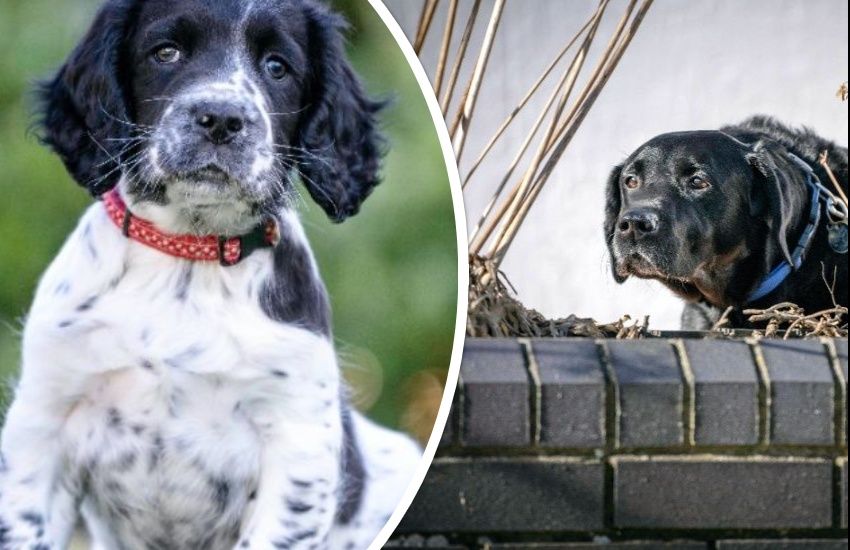

More than fifty islanders have started undertaking scent training work with their dogs for the benefit of their pet’s mental health.
Canine Behaviour Guernsey founder and owner Anna Brehaut said that a dog’s sense of smell gives them “a superpower that humans will never completely understand”.
“Dogs have been employed to assist us in many different roles, many of which have relied on their sense of smell to perform their duties,” she said.
“From police sniffer dogs to bomb disposal dogs, there are many different roles where canines have proved, and continue to prove, invaluable. Medical Detection Dogs UK are even training dogs to identify is someone has covid.”
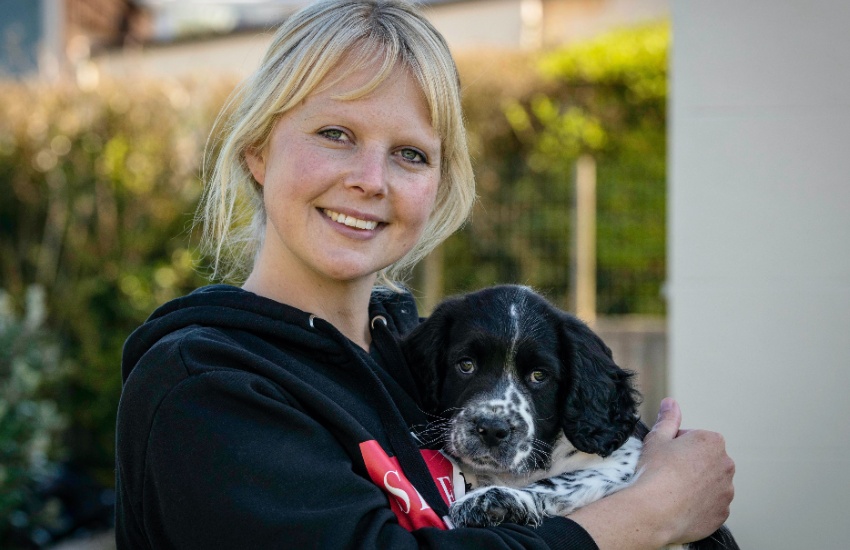
Pictured: Anna Brehaut and her puppy, Ramsey.
Miss Brehaut said she wanted to offer islanders the chance for their pet dogs to learn some of those detection skills as an outlet for their mental energy.
“We launched scent work and detection courses last year and have now developed our own fun awards and trial structure,” she said.
“Islanders can start with the beginner course before progressing further. We have also joined the National Nosework Association so that anyone who wants to progress can compete in the future."
The courses have proved extremely popular so far.
“We are training pet dogs in the world of detection; however, we are not teaching the dogs to be professionals so there are little differences in the way that we do things. There is something quite exciting and thrilling for owners to learn just how dogs can detect what is effectively a tiny bit of the scent in a large area," said Miss Brehaut.
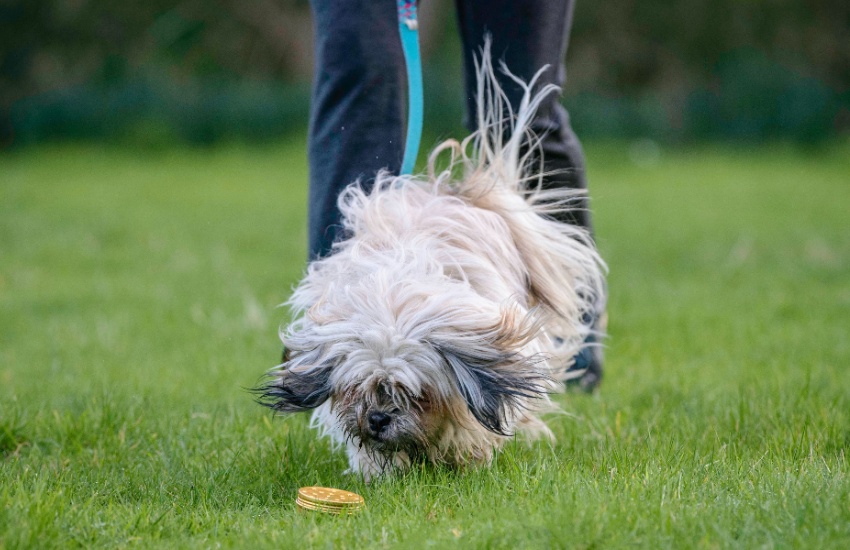
Pictured: Miss Brehaut said scent training has many benefits for a dog's mental health.
Miss Brehaut said the courses really benefit a dog’s mental health: "scent is a dog’s primary sense and they see the world through their nose. For a dog, the most natural thing for them to do is sniff.
“Their primary way of communication is through scent; when greeting another dog, they are able to tell the sex, age, health status of the dog and much, much more by just sniffing them. When on walks, they read messages left in the scent of the urine behind from other dogs and they are able to smell what else has been in the vicinity.”
Miss Brehaut said the covid lockdowns have had an impact on dog’s mental health.
“We did see a slight increase in nervousness and reactivity among lockdown puppies, particularly after the first lockdown,” she said.
“There have also been some dogs who have struggled with the work from home and back to the office changes over the last few months. Dogs are creatures of routine and when they get used to a new routine, it can be a struggle to change back to the old one."
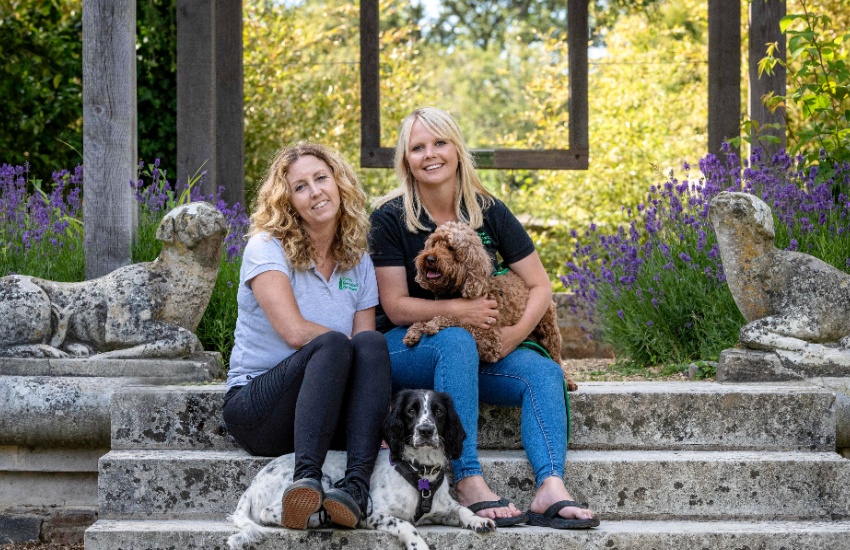
Pictured: Sam Smillie (left) and Anna Brehaut.
Miss Brehaut continued: “we've helped clients put some successful measures in place to help ease the impact on them. Scent work can help keep dogs mentally busy and therefore help to calm but as with any behaviour problem, a full behaviour and training plan needs to be developed to make sure we help them effectively".
Miss Brehaut, who holds a level four diploma in canine behaviour, and volunteer Sam Smillie, are qualified as pet scent instructors with the World Scent Dog Association and have also each attained a City & Guilds approved qualification as Scent Handlers with the UK College of Scent Dogs.
The women have trained their own pet dogs, including cockapoos, spaniels and Tibetan terriers, to detect scents such as: a Kong, which is a type of dog toy; non-toxic gun oil, catnip and human scents.
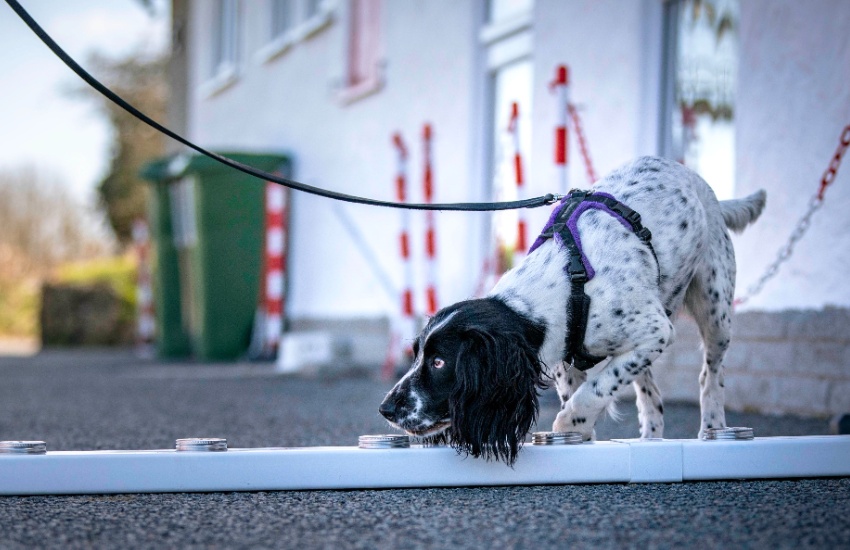
Pictured: scent work is beneficial for all breeds of dog.
Ms Smillie said all breeds and ages were capable of learning scent work and detection: "we have seen a broad range of breeds in our classes from Miniature Schnauzers and little Maltese pups to Labradors, rescues, Border collies and more.
“We have also seen different ages from younger dogs to older dogs which is lovely; the saying that you can’t teach old dogs new tricks is just not true.
“What has been really interesting to see is how the different breeds learn in slightly different ways. Training different breeds while we were studying over the last few years has helped us learn so much more and it means we can really adapt our teaching to suit everyone.”
Miss Brehaut has recently added an English Springer Spaniel puppy named Ramsey to her family of dogs alongside her two cockapoos, Holly and Murphy.
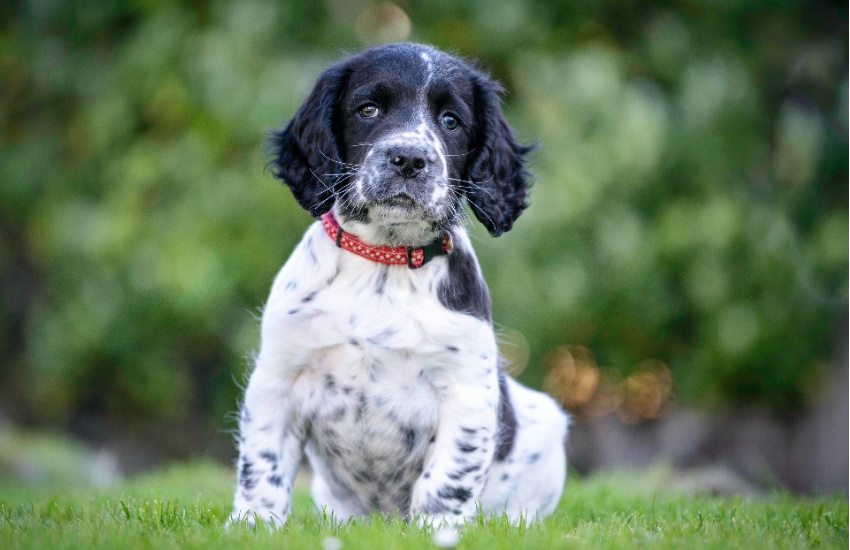
Pictured: Ramsey is an English Springer Spaniel and will be taking part in the training when he is older.
“Ramsey is a lovely puppy. He will be trained as any pet puppy would be and will be taking part in the puppy scent work course that we have recently launched to build his confidence when searching," continued Miss Brehaut.
“I hope to train him in detection when he is a little older, but at the moment we are just enjoying his puppyhood.”
Miss Brehaut trained in canine behaviour after her own dog displayed “guarding” behaviour.
“I saw the potential to help so many other dogs in the island. There are thousands and thousands of dogs over here and not many people truly understand behaviour and canine body language; it’s a real passion of mine to help educate owners and other people about how dogs think and why they act the way they do,” she said.
“If we can use understanding and kindness in our training then it really improves all outcomes for everyone.”
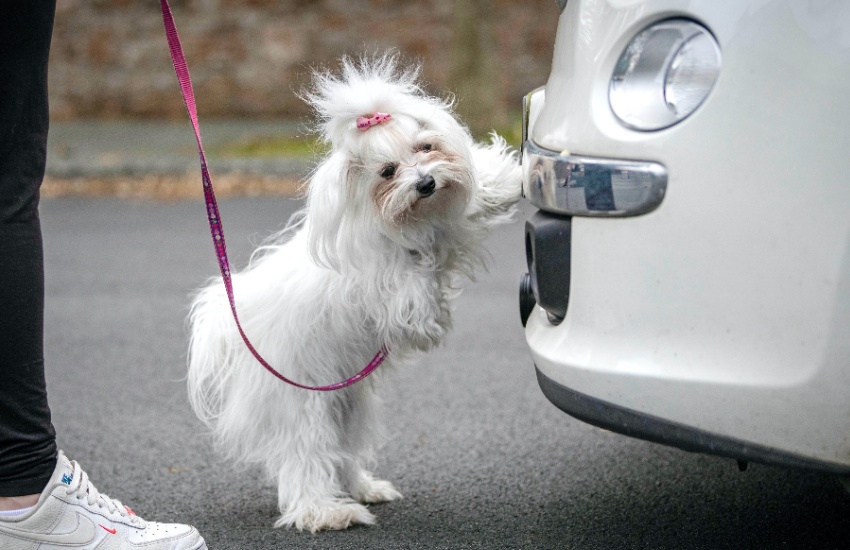
Pictured: local owners can compete in National Nosework Association competitions.
Comments
Comments on this story express the views of the commentator only, not Bailiwick Publishing. We are unable to guarantee the accuracy of any of those comments.